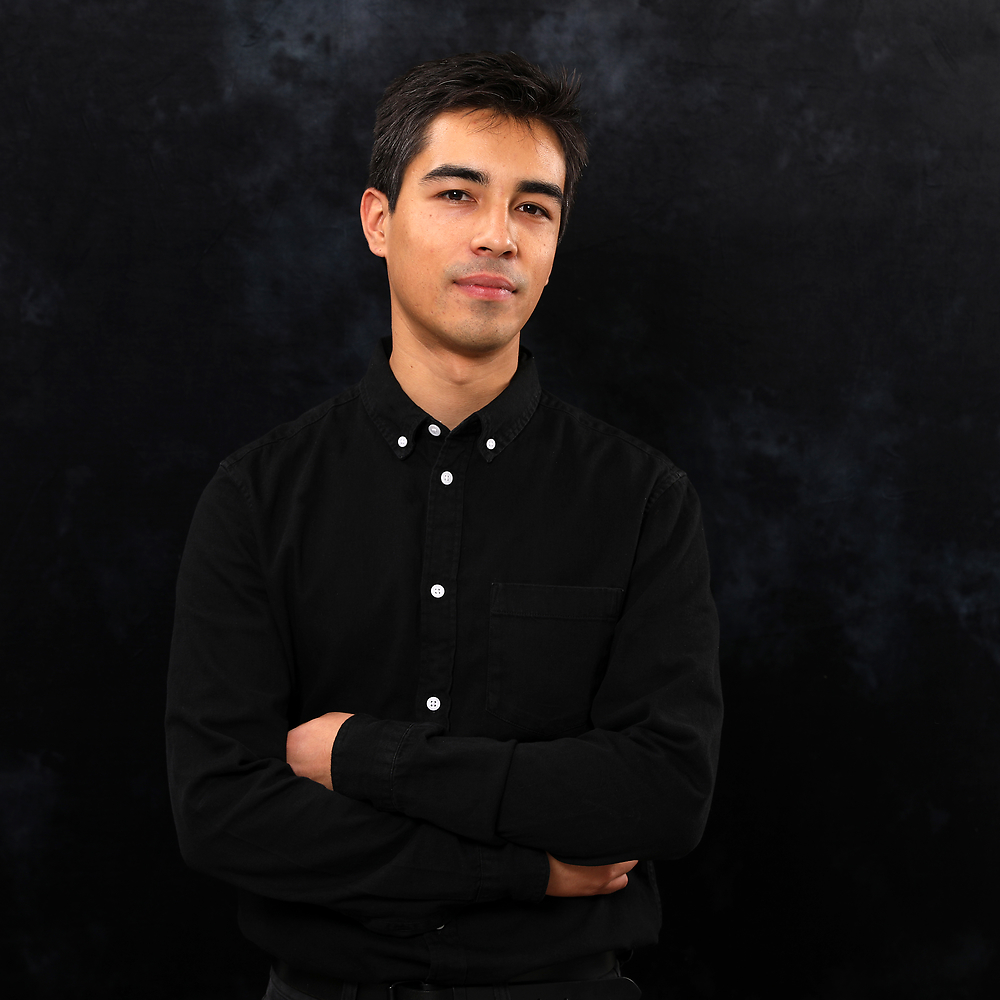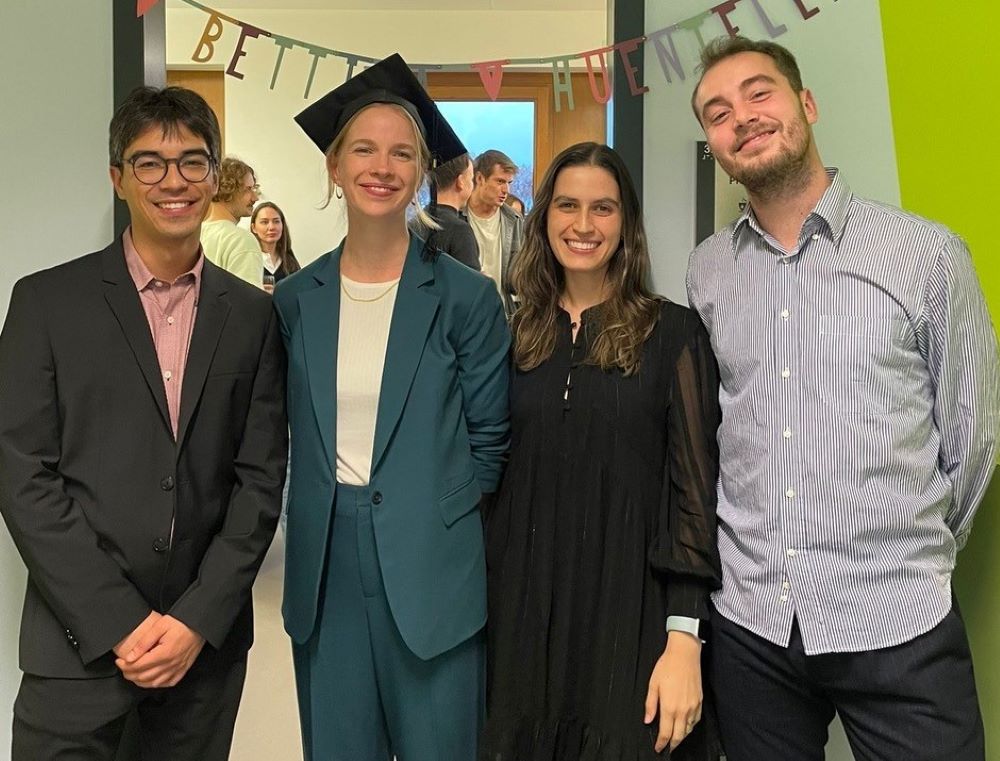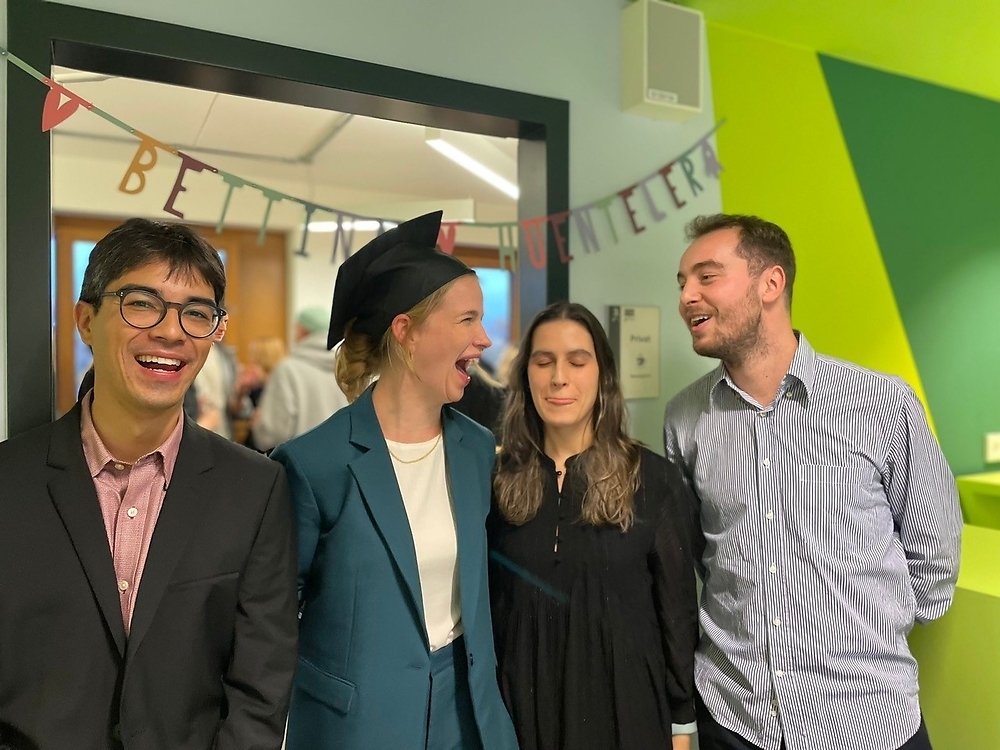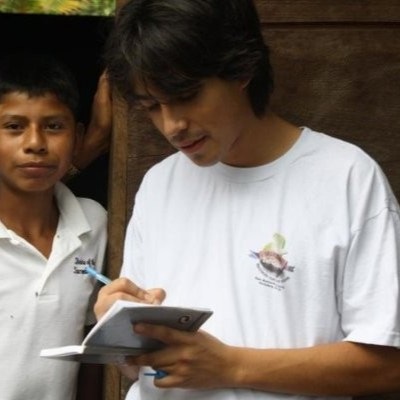01/2024 - Interview with Diego Alburez-Gutierrez
“As researchers we have to reach out to the public”
Diego Alburez-Gutierrez wins the European Demographer Award – a special honor for the scientist who leads the Research Group Kinship Inequalities at the Max-Planck-Institute for Demographic Research (MPIDR). In an exclusive interview, Diego talks about what drives his research, what we can learn about violence and war, and what families will look like in the future.

Diego Alburez-Gutierrez. © MPIDR | Fotostudio Hagedorn Rostock
Diego, we're sitting here in your office at the Max-Planck-Institute for Demographic Research, with a beautiful view over the Warnow River. You are the head of the Research Group Kinship Inequalities, you have received several awards and honors, and soon a new award will be added to your gallery: the European Demography Award. It will be awarded to a young and promising scientist. You have already taken many steps on your career ladder, let's go back to the first step. Why are you interested in demography in the first place?
I grew up in Guatemala in a very unequal society, in an unstable system that was full of corruption. Experiences of war and violence are still very common. Especially among the indigenous people of the country, who roughly make up half of the population. I studied anthropology for my undergraduate degree, but social sciences and anthropology are very different in Guatemala than in Germany. We don't really have such a well developed academic system. So social science is very much linked to activism, because people are trying to document injustices and social inequalities. And that's also how I got involved. Literature has also been very inspiring for me. I like novels that follow a family either through time or through multiple generations. Gabriel García Márquez's "One Hundred Years of Solitude”, for example, I remember reading it as a child, and I'm still very much influenced by his work.
Your first big project also dealt with family structures. You wrote your thesis on the effects of the mass killings of the Maya Achi people in the Río Negro region of Guatemala in the 1980s. One-third of the people were killed, and your research shows how these killings affected family members who survived.
I wanted to understand the details of the deaths and how they affected mortality and fertility in the long term. The region was historically inhabited by the Maya Achi people, who settled along the banks of a river. The government wanted to build a hydroelectric dam in this river (the Chixoy Hydroelectric Power Plant) and tried to relocate this population. But they didn't want to move. So, the government, a military dictatorship, executed a number of massacres to allow for the construction of the power plant. It is still the biggest source of energy in the country. So, every time somebody in Guatemala turns on the light, they use energy from it, and hardly anybody knows the story behind this.
Did your research change that or make people aware of it?
I wouldn't say that. But as researchers, we have a responsibility to reach out to the public who may be interested in a topic but may not read academic journals. So, one of the projects I have been working on recently is to write a popular science book on this topic. I hope that more people will read it. It will still be based on my evidence, but I won't need equations or graphs to get the message across.
You spent a year in the field interviewing survivors of the genocide – it seems to me that you still feel very passionate about this project. Has your research also affected you on a personal and emotional level?
It had a big impact on me. I put much less emphasis on my own mental and emotional well-being than I should have. So, it took its toll and I often felt overwhelmed and hopeless by hearing the testimonies of the survivors. I mean, I had all these resources, I was in touch with organizations that could provide support for the people I was working with if they needed it. But I didn't do the same for myself. And I should have. I take this as a learning experience and now that I am supervising PhD students myself, try to be particularly aware of their mental health.
At the same time, you grew as a person, and so did your research. What is the focus of your current research?
My PhD research used empirical data I collected myself, but it only applied to people in Guatemala. I wanted to continue this kind of research and examine families and kinship structures in different settings. Now, I use demographic models to study families and their composition worldwide. These population models let me examine family structure processes across various countries at a basic level, such as in Latin America, Southeast Asia, or South Africa.
For a newspaper report, you calculated how many grandparents there are worldwide and what that means for families if there are more and more grandparents. Is that the kind of research you're talking about? Are you looking into the future to see how families are going to evolve around the world?
Yes, so if we look into the future, we find that families worldwide are expected to become smaller in terms of the number of relatives people have. Another finding is that they will become more vertical, meaning that people will likely have fewer siblings, cousins, nieces, and nephews. Families are becoming more like a stick. And the third finding is that the age difference between people and their relatives will increase, especially because it will mainly be parents and grandparents. So, there will be a bigger age gap between people and their kin.
Can you say what the consequences will be?
In Germany, you can ask your family for help if you are raising a child, but there are also many institutions and organizations that offer help. A private company or the state can support you in caring for your child or an elderly relative. In many parts of the world, however, these organizations do not exist and people have to rely on their family members alone. An important consequence is that when families become smaller and smaller, relatives can no longer be a reliable source of support. This increases the pressure on individuals. One of our recommendations is therefore that countries should invest more in these resources and services. That is why the work of the Kinship Inequalities group is significant, as it focuses on the family in a different way.
What do you mean?
Many demographic studies of families focus on couples and their children or individuals living together in a household. In our work, we include multiple generations, such as grandparents or siblings — whether they live with you or not. This allows us to gain insight into the challenges faced by the population as a whole.
And you hope to reach policymakers with the big picture?
I believe the key message is that by analyzing family processes and structures, including them in our research allows us to generate actionable insights that we strive to communicate effectively to the appropriate audience.

Diego Alburez-Gutierrez and his team at the PhD defense of Bettina Hünteler with Amanda Martins and Andrea Colasurdo (left to right). © private
Speaking of the bigger picture: You are the head of the Kinship Inequalities group, supervising post-docs and PhD students. How does your work as head of the group differ from your work as a researcher?
I'm still learning the importance of the bigger picture as the head of this group. When I was working alone on my own projects, my focus was on answering my own research questions. Now, I am taking a step back and collaborating with members of my team, who have complementary backgrounds and areas of expertise. While I still have my own research projects, none of them involve working alone. And of course, I spend more time discussing my students’ projects and their interests. I learn a lot from working with them.

© private
So the European Demographer Award is not just an award for you, but for your entire team?
I think so. It's important to pay more attention to the extended family. It has been somewhat neglected in demography in recent years (though there have always been some people working on this topic). Now we have the tools and data to study processes that go beyond the nuclear family. Part of my work with the group is to build a community of researchers and students who can do this kind of analysis. We have held numerous trainings, workshops, and talks at conferences, visited universities in different countries and invited people from different countries to the Max Planck Institute for Demographic Research to learn how to use these tools.

Diego Alburez-Gutierrez interviewing residents. © private
However, when I look at your social media profile picture, I see you in your early 20s, holding a pen and a notebook, with a child behind you who you're probably interviewing. I would have guessed that's the best part of your job? Talking to people, writing things down, drawing conclusions?
I think so. And telling stories, I would say that's the kind of thing I like the most. If you don't do a good job of telling whatever story you want to tell in a compelling way, then you run the risk of losing the message. And I spend a lot of time on that, trying to write things down that have a clear story line. So that readers can enjoy the text even if the subject is difficult.
Interview conducted by Katharina Elsner, freelance journalist.